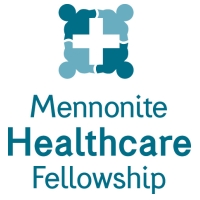Mennonite Health Journal
Articles on the intersection of faith and health
Respect
Murray Nickel, MD
from Mennonite Health Journal, Vol. 17, No. 4 – November 2015
“Say ‘please.’” “Say ‘thank-you.’” “The sign says don’t walk on the grass….so don’t walk on it.” “If they tell you to be quiet, be quiet.” My father taught me to respect others. Respect your mother. Respect the neighbors.
My siblings and I learned early on what this meant. It meant that including everyone in the group was imperative, swearing or yelling at someone was in poor taste, and listening to people was an obligation.
I’ve now been programmed to think that acting in this way is right and good. I feel guilty when I act differently. But is this sort of behavior really respect or is it just being a nice person?
Having lived in Africa, I’ve attended many meetings concerning African poverty. It starts with an idea. Maybe it’s distributing medicine to clinics in need, or training nurses in preventative medicine, or handing out scholarships for further medical training. The ideas are good, relevant and applicable. The experienced people around the table are thoughtful and informative.
Despite the good discussion, there’s often a nagging feeling of guilt lingering in the air. Nobody can put their finger on it until finally someone pipes up, “Um…if we’re talking about doing something in Africa, shouldn’t we have an African at the table?” Ah yes. That’s what’s missing. We’d be far more expedient implementing the idea on our own, but out of respect we bring them into the planning circle. The feeling of guilt is appeased. We’re back on the right track.
Reaching out to each other over oceans and continents isn’t cheap. At the next meeting, chosen representatives from Africa get flown over to the USA for discussions. Or, more often than not, some of us fly over to Africa to meet with relevant leaders. A discussion of ideas begins.
The African representatives agree that the ideas are great. One of them gets hired to implement the ideas and manage them. After a few years of success, an effort is made to hand over the reins, including the funding. Managers are trained, infrastructure is built up; these are all tools that will help the local church or community sustain the success of the idea.
But the idea rapidly fizzles. It doesn’t seem to matter how good the idea is. Africans often live from one good Western idea to the next. After all, that’s where the money is. We in the west are under the illusion that our idea is somehow better than all ideas that have come before it. Just the same, it doesn’t last.
What’s the problem? I feel, it’s lack of respect. I’m not talking about the respect my father taught me. That kind is a given. That respect is civil behavior. I’d feel guilty if I behaved otherwise.
Everyone at the meeting is nice. We might feel that in the past our fathers and grandfathers were less inclusive. Like us, they too tried to be nice. But we, of course, have one over on them. We’re inclusive.
We call this being respectful, but it’s not. It’s only being nice. True respect demands more. It demands honor. I’m nice so that everyone likes each other and we all get along. I honor because I deeply value someone. Honor requires an attitude of servanthood. It calls for humility, enough to let go of our ideas and focus outward.
Honor isn’t an attempt to make sure everything is fair. It’s a desire to dig deeper, to take the time to listen. Respect fertilizes a deep appreciation for the passions and ideas pent up in the heart and soul of the next person.
Our ideas may seem great but if they’re going to mean anything to the grassroots or have a sustainable impact, the idea needs to start in Africa. An African idea may not be what I think is a priority. Nor may it seem as innovative as my idea. But if I’m truly aiming for transformation, then I need to honor his passions and place them before my own. I need to realize that it’s his idea, not mine, that contains the heart and soul of Africa.
About the author
 Murray Nickel, MD, is President of International Mennonite Health Association (IMHA) and an emergency physician living in Abbotsford, British Columbia, just outside of Vancouver. He spent six years in Congo in association with Mennonite Brethren Mission and now travels back and forth between Congo and Canada two or three times a year. He has a special interest in human development and transformation in the context of the poverty.
Murray Nickel, MD, is President of International Mennonite Health Association (IMHA) and an emergency physician living in Abbotsford, British Columbia, just outside of Vancouver. He spent six years in Congo in association with Mennonite Brethren Mission and now travels back and forth between Congo and Canada two or three times a year. He has a special interest in human development and transformation in the context of the poverty.

